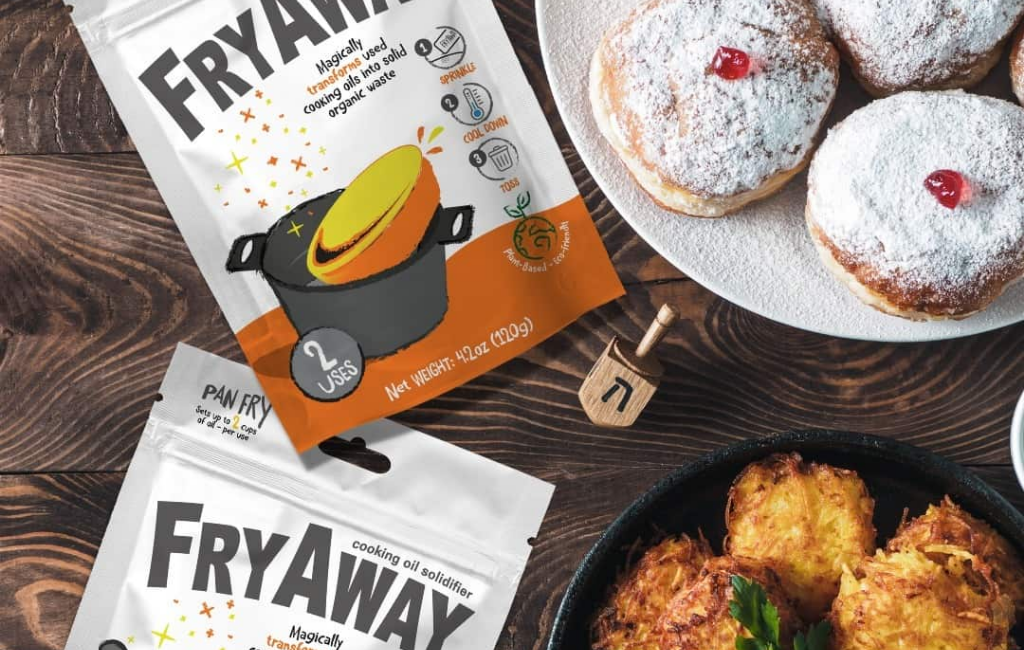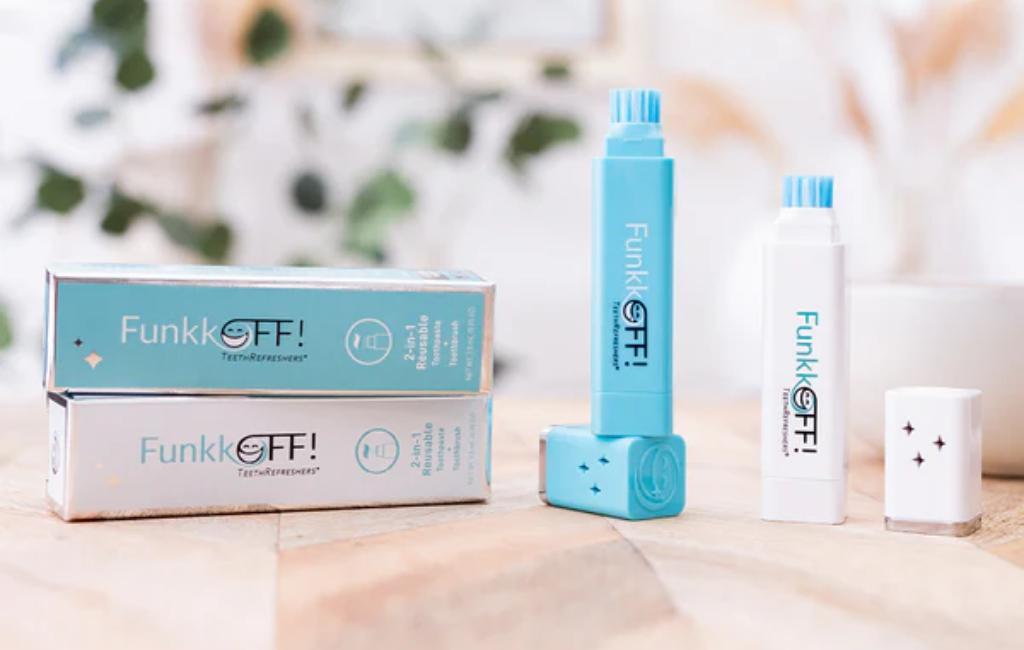Slick Barrier – Pest Control
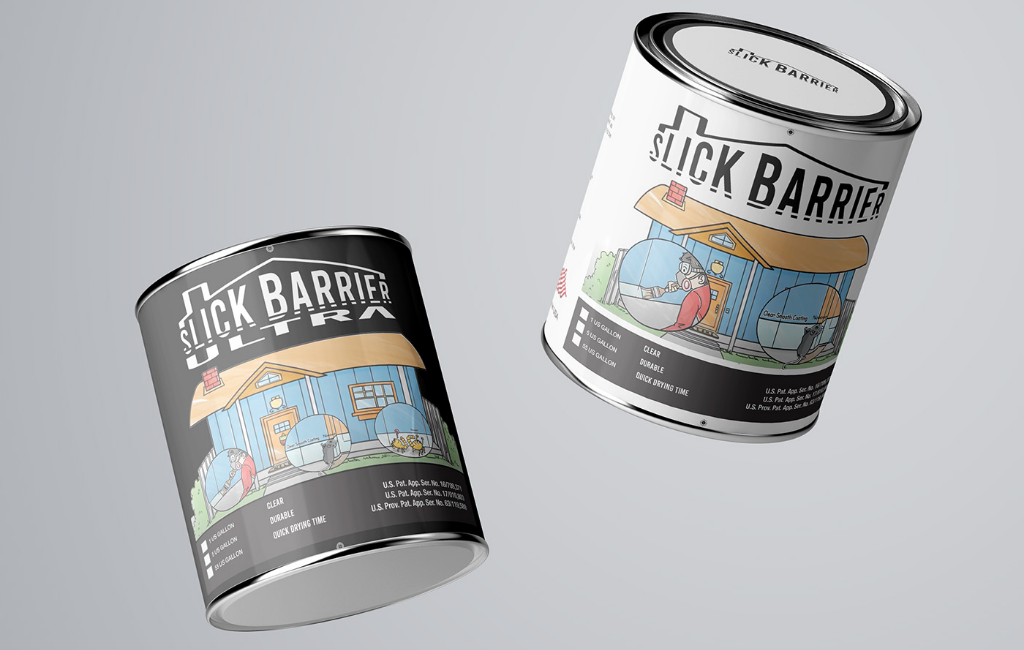

DEAL
EPISODE SUMMARY
🕓 Air Date: January 27, 2023
Asking For:
$500,000 for 10%
Investor:
Lori Greiner
Deal:
$500,000 for 15%
PRODUCT SUMMARY
Slick Barrier is a pesticide-free physical barrier that prevents crawling pests like scorpions, cockroaches, and rodents from entering homes by creating a smooth, slick surface around the house’s base.
WATCH HERE
IN A RUSH?
Click these to jump to the section you want to read.
Background Story
Founders Tony and Aaron, based in Gilbert, Arizona, created Slick Barrier out of a personal need to protect their homes from crawling pests. Tony, who had a background in corporate sales, experienced a frustrating and dangerous scorpion infestation in his home. Traditional pest control methods were ineffective, leading him to experiment with creating a smooth, impenetrable surface around the base of his house.
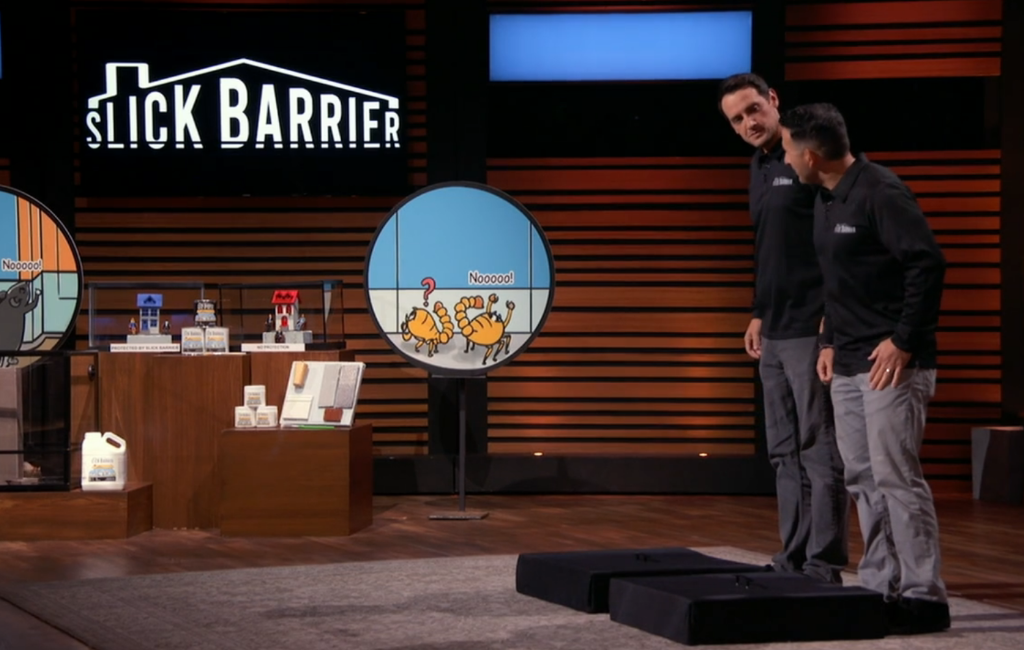
Discovering that pests couldn’t climb this slick barrier, Tony and Aaron decided to turn their solution into a business. They obtained third-party testing from universities like Texas A&M and New Mexico State University to validate the product’s effectiveness against various pests, including bedbugs, roaches, and scorpions. In 2020, they started selling their services, generating $180,000 in revenue. By 2021, they had earned a total revenue of $650,000, with $200,000 coming from product sales to pest-control companies.
The Product
Slick Barrier is a groundbreaking pest control solution designed to create a protective barrier around the base of homes, preventing crawling pests from entering. The product is applied a few inches above the ground, creating a smooth, slick surface that pests like scorpions, cockroaches, bedbugs, and rodents cannot climb.
Unlike traditional pest control methods that use poisons or chemicals, Slick Barrier is entirely pesticide-free, making it a safer and eco-friendly option.
The product is available in a water-based formula, making it easy for homeowners to apply it themselves, much like painting a surface. It can be applied with basic tools and doesn’t require professional pest control services, saving homeowners time and money.
The price of the product is $100 per gallon, making it an affordable and efficient solution for homeowners looking to safeguard their homes against unwanted pests.
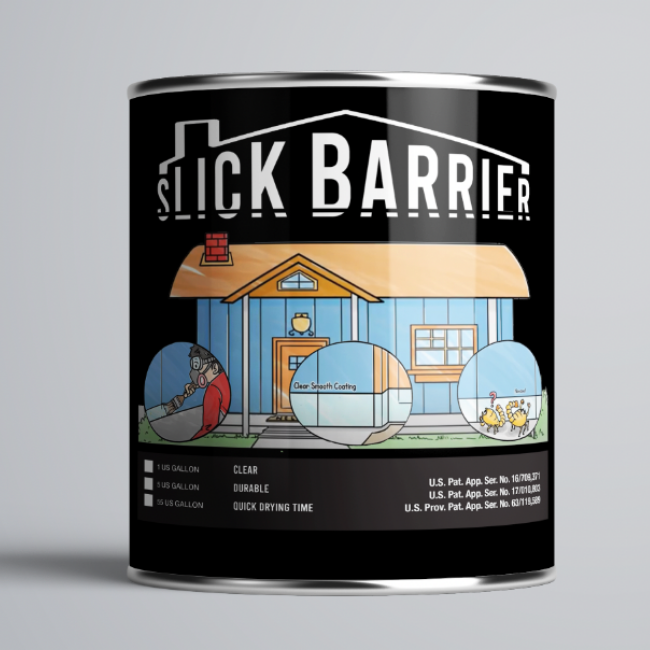
How It Went
The company’s position before Shark Tank
Slick Barrier initially focused on providing services and generated $180,000 in revenue in 2020, but by 2021, they transitioned to selling the product directly to pest-control companies, resulting in a total revenue of $650,000, with $200,000 coming from product sales. In 2022, they shifted their focus to selling directly to consumers.
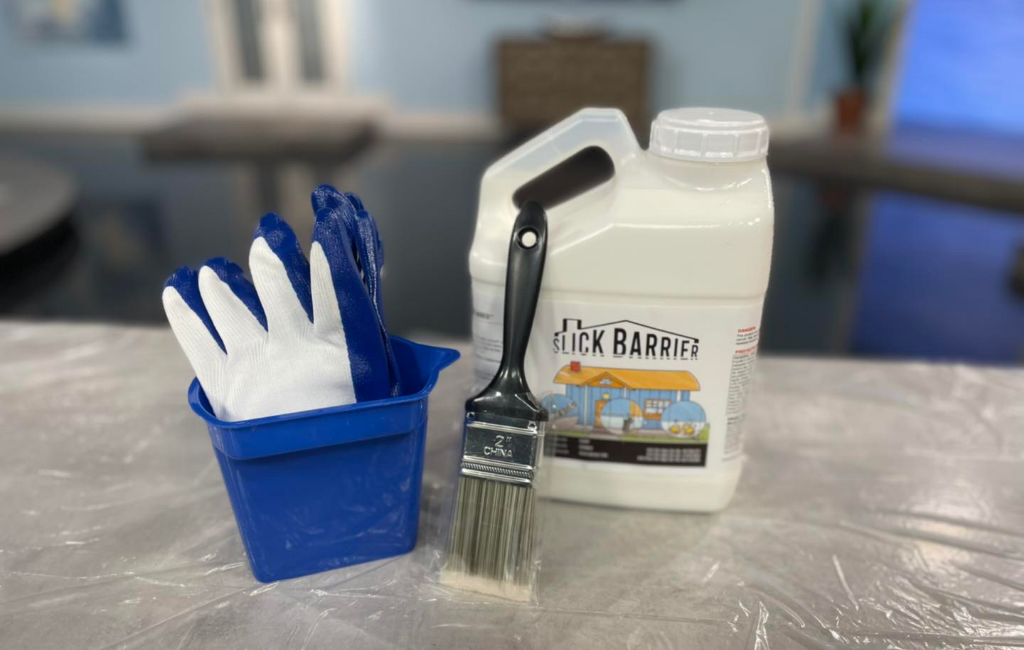
The company has partners, including universities such as Texas A&M and New Mexico State University, which conducted third-party testing to validate the product’s effectiveness. These partnerships helped establish Slick Barrier as a credible pest control solution. Regarding funding, Slick Barrier raised approximately half a million dollars at the end of 2020 and another $700,000 with a valuation of $3 million. These capital injections were meant to help the company expand and develop its products.
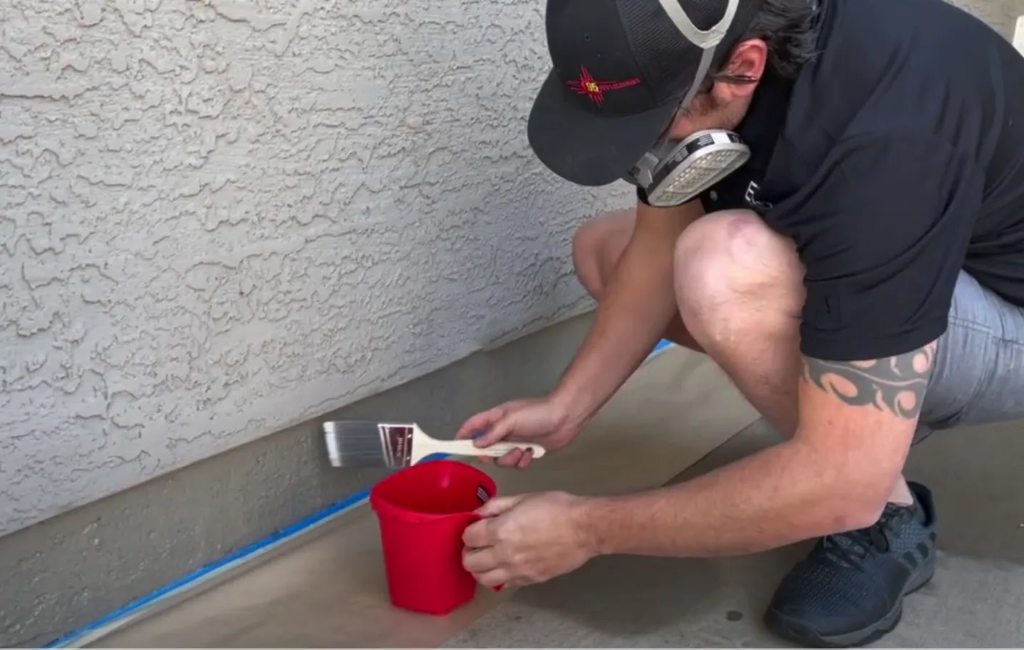
The Negotiations:
During the pitch on Shark Tank, Tony and Aaron initially asked for $500,000 in exchange for 10% equity in their company, Slick Barrier. The Sharks were intrigued by the product’s pest-prevention capabilities but had concerns about the valuation, as the company had raised capital and was not yet profitable.
The Sharks, including Mark Cuban, Kevin O’Leary, Robert Herjavec, and Daymond John, all expressed concerns about the company’s valuation and profitability. They were skeptical about the company’s prospects, given the competitive pest control industry and the need to sell a considerable volume of the product to justify the valuation.
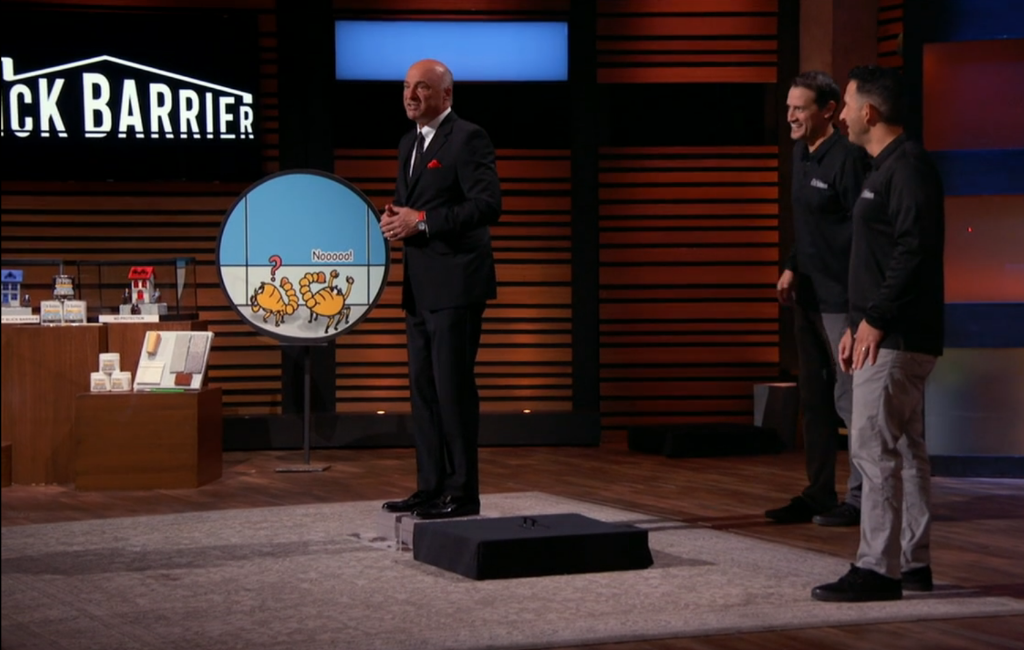
The negotiations started with Lori Greiner making an offer of $500,000 for 15% equity, with $100,000 upfront and the remainder as a loan. She believed that the product had the potential to appeal to consumers and saw opportunities for licensing and branding. Despite initially seeking a lower equity stake, Tony and Aaron agreed to Lori’s offer, recognizing the value she could bring to the company.






